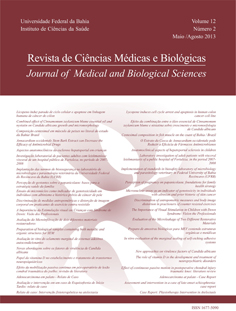Annacardium occidentale Stem Bark Extract can Decrease the Efficacy of Antimicrobial Drugs
DOI :
https://doi.org/10.9771/cmbio.v12i2.7043Mots-clés :
Cashew, interference, antimicrobials.Résumé
Background: Due to the growing use of phytotherapy clinical strategies for infectious diseases, healthcare providers and patients must know the risks of interactions between such preparations and synthetic drugs. Cashew extracts are widely used in Brazil for complementary treatments of infectious diseases, and often are combined to antimicrobial drugs. However, the possible consequences of such combinations are unknown. Objective: To assess the interference of the Cashew stem bark hydroethanolic extract (CSBE) on certain antimicrobials against clinical isolates of staphylococcal species. Methodology: Antimicrobial susceptibility test and interference assays were performed using gentamycin, ampicilin, ciprofloxacin, G penicillin, neomycin, rifampicin and vancomycin disks. Results: Here we show that the CSBE might reduce the therapeutic activity of some antimicrobial drugs in Staphylococcal species. We found in controlled in vitro assays that the antagonistic effect was seen in all antimicrobial drugs tested for most of the strains and statistically significant differences were found when compared to the control antimicrobials. Our results also indicate the presence of tannins, flavonoids and saponins in the CSBE. Conclusion: Such combinations are suggested to be not adequate for clinical treatments. Further researches are needed for a better understating of such interactions at the molecular level.
Téléchargements
Téléchargements
Publiée
Comment citer
Numéro
Rubrique
Licence
A Revista de Ciências Médicas e Biológicas reserva-se todos os direitos autorais dos trabalhos publicados, inclusive de tradução, permitindo, entretanto, a sua posterior reprodução como transcrição, com a devida citação de fonte. O periódico tem acesso livre e gratuito.






